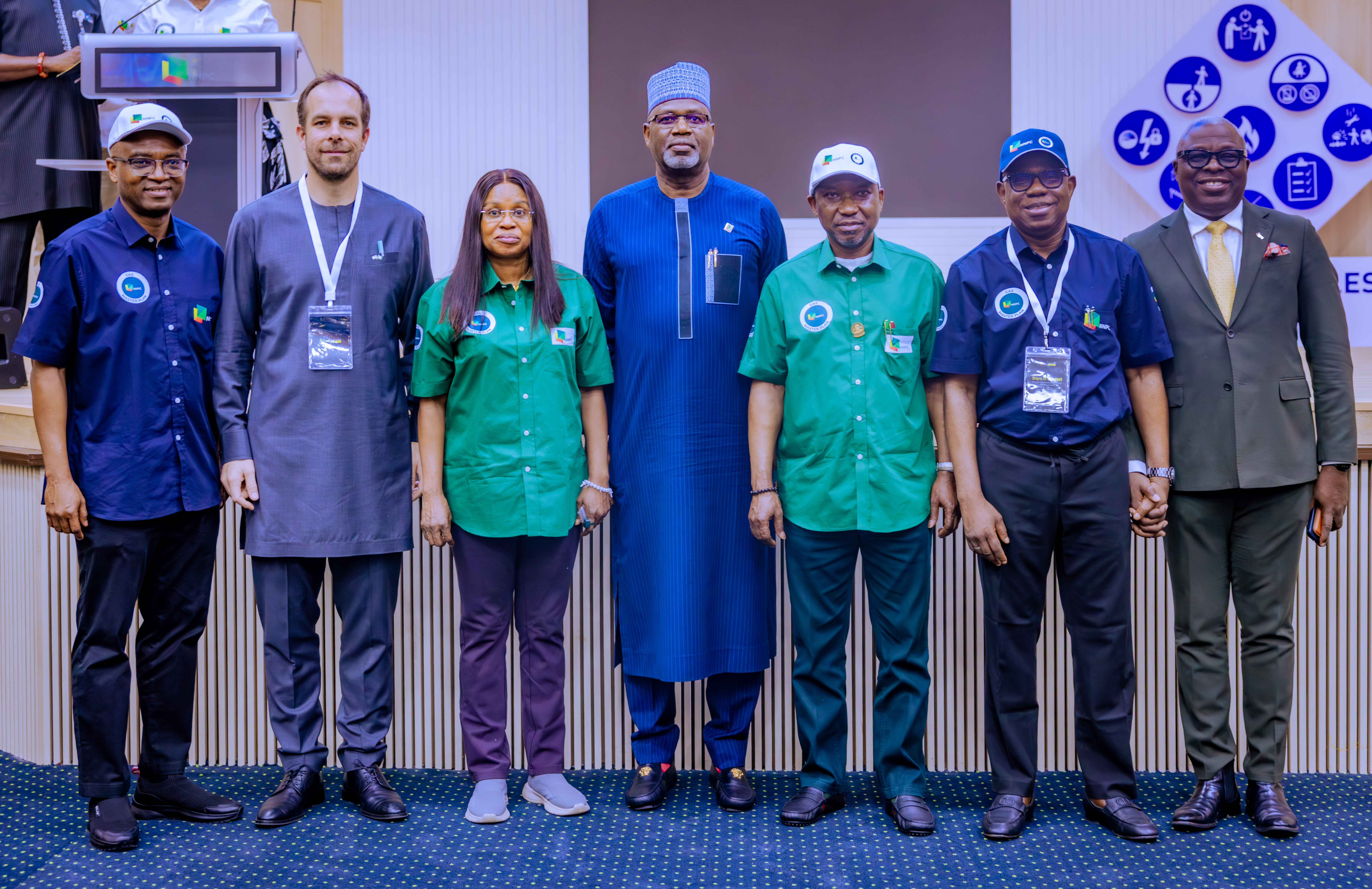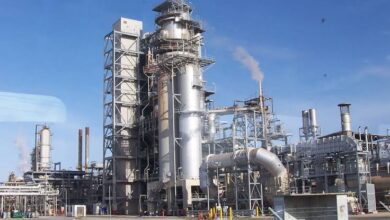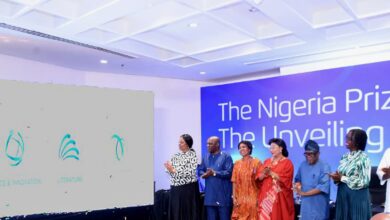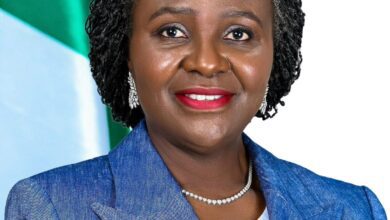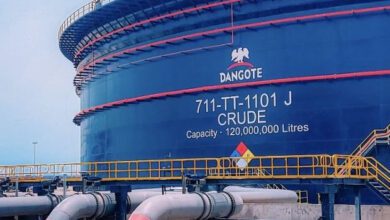Dangote Refinery: Nigeria To Save Over $26bn Under Tinubu -Emefiele
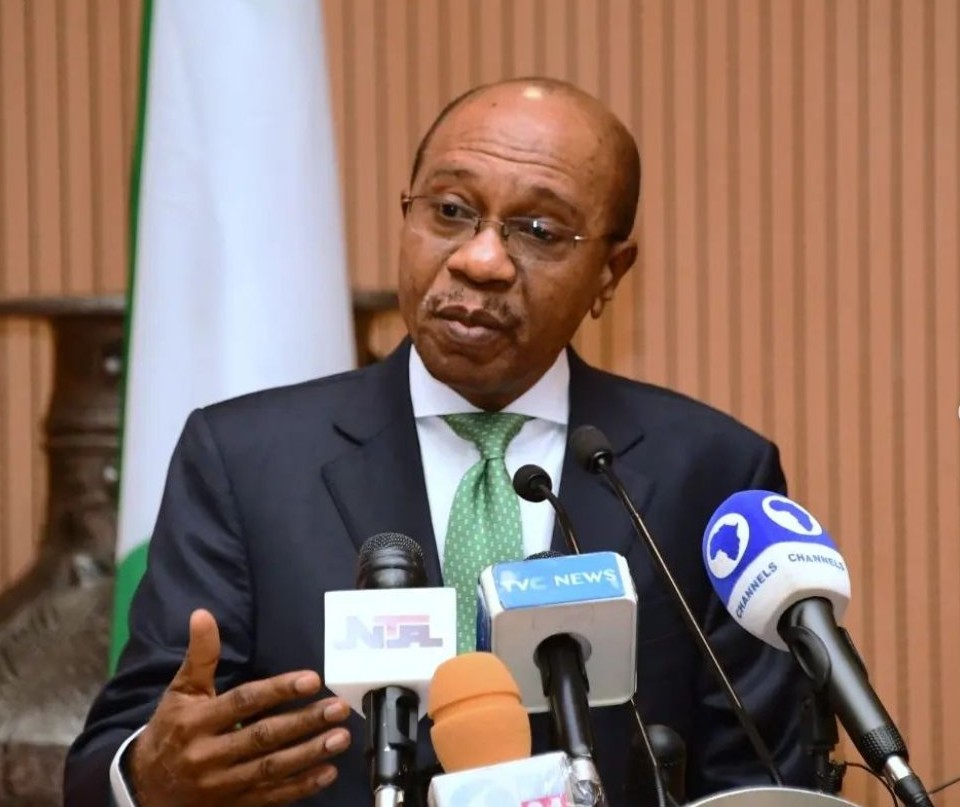
The Governor of the Central Bank of Nigeria (CBN), Mr Godwin Emefiele has disclosed that under the incoming administration of President Bola Ahmed Tinubu, Nigeria will cease to import petroleum products, fertilizer and petrochemical that drained over US$26 billion in FOREX in 2022.
Emefiele disclosed this in his Goodwill Remarks at the Commissioning of the Dangote Refinery and Petrochemicals Complex in Lekki, Lagos on Monday.
TheFact Daily reports that the Dangote complex comprises a refinery, petrochemical plant, a urea/fertilizer plant, and a subsea pipeline project.
The petrochemical facility has a capacity to produce 900,000 metric tons of polypropylene per annum while the urea fertilizer plant will be able to produce three million metric tons of urea annually.
Its flagship project, the Dangote refinery which has the capacity to process 650,000 barrels of crude oil per day, is the largest single-train refinery in the world.
Speaking further on its numerous economic benefits to Nigeria, Emefiele said, “in the first instance, it will generate thousands of direct jobs and millions of indirect jobs, with over 135,000 permanent jobs. I am also proud to state that the project will generate up to 12,000MW of electricity.
“More importantly, this project avails Nigeria with significant savings both in terms of foreign exchange and in easing the fiscal burden on the Federal Government. Available data at the Central Bank of Nigeria as of 2014, shows that at least 30 percent of the foreign exchange required to meet Nigeria’s import needs went into the importation of refined petroleum products.
“It is instructive to note, distinguished guests, that according to the balance of payments statistics, the cost (including freight) of petroleum products imports into Nigeria doubled over a five-year period from about US$8.4 billion in 2017 to US$16.2 billion (indicating an annual average of US$11.1 billion), before rising further to US$23.3 billion by end-2022.
“At this rate, the average annual cost of petroleum products imports to Nigeria could reach US$30 billion by 2027 if we continued to rely on petroleum imports. These figures suggest that the refinery could engender foreign exchange savings to the country, of between US$25 billion and US$30 billion annually.
“Aside from the nearly US$30 billion foreign exchange savings from the reduction in petroleum imports, the economy is projected to benefit an extra US$10 billion of foreign exchange inflow annually through the export of refined petroleum products, which will further boost our official reserves and enhance exchange rate stability.
“This project will equally provide support to the fiscal operations of the government as it could help ease budget constraints of funding the petroleum subsidy and engender fiscal savings”, he said.
The apex bank governor noted that the self-sufficiency in refined petroleum, urea, and polypropylene, which Nigeria has attained with the project was a strong testament to how leadership, dedication, focus, commitment, and resilience has helped Nigeria in its drive towards import substitution and export orientation.
He said, “given its processing capacity, the refinery was more than able to meet all of Nigeria’s domestic fuel consumption; whilst the excess production would be available for export.
“This will not only aid our domestic petrol needs, but also help in generating export revenues for our country.
“The refinery is designed to process not only the Bonny Light grade of crude oil, but also process a wide variety of other crude streams including many from Africa, some Middle Eastern streams, and the US Light Tight oil.
“More importantly, the refinery can deliver all types of liquid products including gasoline, diesel, kerosene, and aviation jet fuel”, he added.
Emefiele said, in September 2013, when Alhaji Aliko Dangote announced his plans for the refinery, it was estimated to cost just about US$9 billion.
He said, by 2017 when the Dangote Group commenced building, the project cost had escalated and due to an array of factors, the project was eventually completed at a total cost of US$18.5 billion with contribution of 50 percent equity investment by Dangote and 50 percent debt finance by the banks.
He said, the CBN also partnered, as always, with the Dangote Group in ensuring the successful completion of the project by providing about N125 billion, to cover domestic currency requirements for the venture; while also ensuring the availability of FX to pay for the importation of some of the plants and Machinery that were commissioned.
“We have it on good authority that the Dangote Group has paid down some portion of the commercial loans even before the commissioning of this facility. As at today, total outstanding stands at $2.7 Billion. This reflects the astute credit worthiness and commercial capability of the Group and its Chairman, Alhaji Aliko Dangote”, he added.
The governor recalls “the events leading to Nigeria’s eviction from the JP Morgan index in 2017 following their pessimism on Nigeria’s economic outlook and our ability to take charge of our fortunes. At that time, we had explained the ongoing efforts to diversify our economic base, through import substitution and export promotion strategies, to sustainably attain self-sufficiency.
“They were very skeptical, saying that Nigeria typically crafts brilliant policies that could engender diversification but lacked the ability to fully implement them. Even when we insisted that, under the leadership of President Muhammadu Buhari, that the ongoing efforts will be actively implemented to diversify the economy and make the country globally competitive; they still doubted us.
“Aside from enumerating our strategic efforts in agriculture and other critical sectors, a sterling project that we highlighted to our foreign investor community was this gigantic Dangote Refinery and Petrochemical project.
“They doubted our willpower to succeed with this project. In hindsight, I could appreciate their skepticism because they do not understand how a single individual could build a refinery capable of serving an entire nation and continent. To them, projects of this magnitude are usually only undertaken by sovereigns not individuals. But like Nelson Mandela once famously said, “it always seems impossible until it is done.”
He said, in consistent with the Federal Government’s drive to diversify the economy, the CBN, through its various development finance interventions, has continued to support critical sectors of the Nigerian economy to promote a homegrown rebalancing of our economy and foster self-sufficiency.
“For instance , in the last 7 years , the CBN has injected over N8 trillion to intervene in different sectors such as Agriculture , manufacturing health and education and these have helped in sustaining the current growth trajectory in the Nigerian economy”, Emefiele said.


